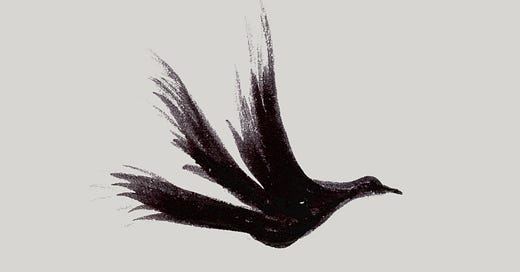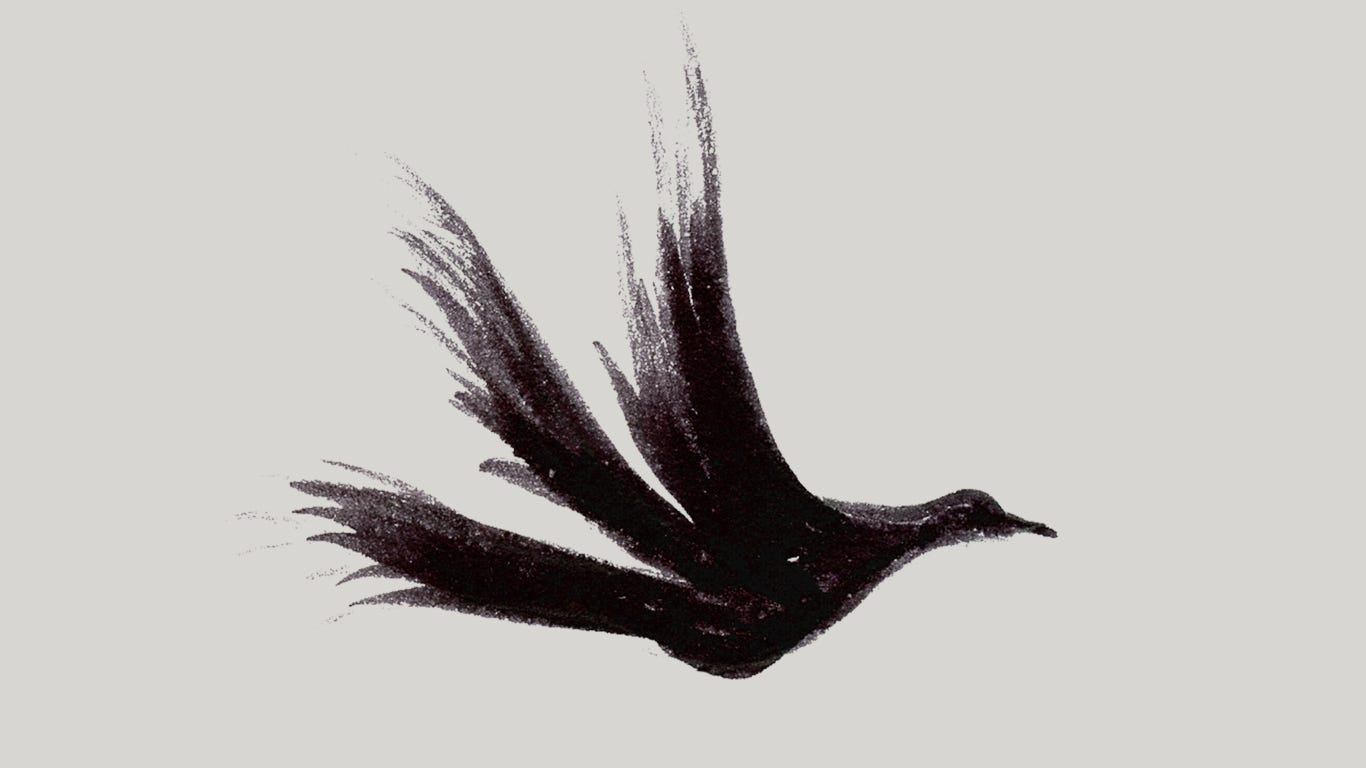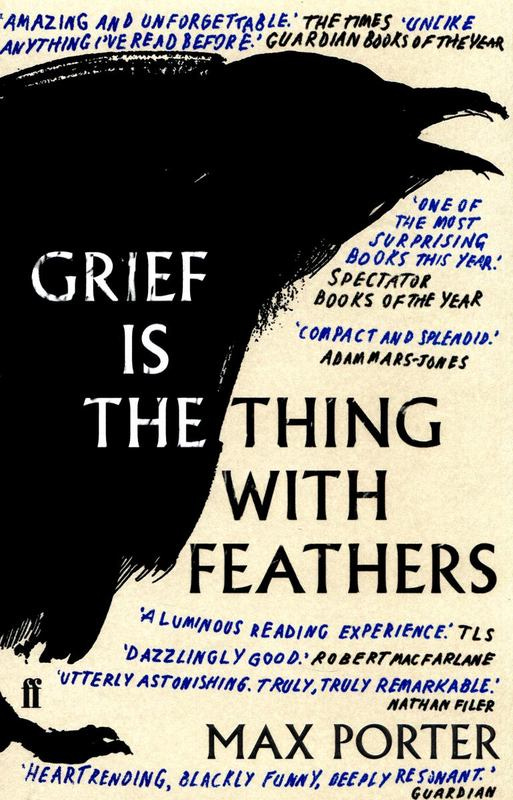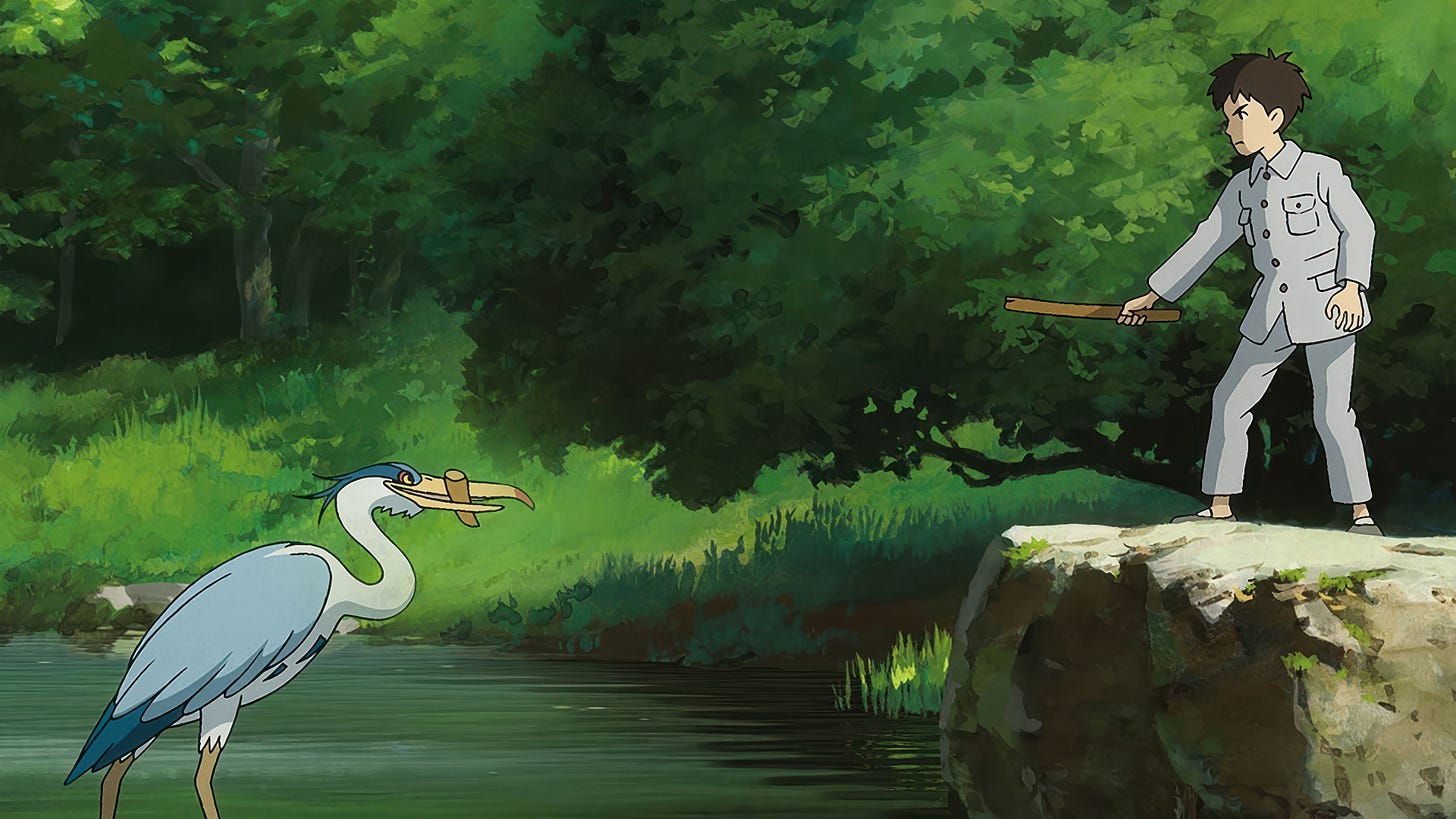One of my favourite books I have read in the last few years is Grief is the Thing with Feathers by Max Porter. Part novel, part poetry this slender volume had an impact much bigger than its size. In it, a father and his two young children come to grips with the shock and grief after the sudden loss of their wife and mother.
Grief comes to them symbolised in the form of a crow that comforts and teases, comes and goes, but one they never tame, and is never for them to hold.
“I plucked one feather from my hood and left it on his forehead, for, his, head.
For a souvenir, for a warning, for a lick of night in the morning.
For a little break in the mourning.”
I recently had my own experience of grief being the thing with feathers, and it lead me to reflect again on the profound beauty of this book, and the vast array of griefs we collect over our lives.
We had just received the sudden and out of the blue news that a family member had died. We had no clue she was sick, we hadn't spoken in years and she wanted nothing to do with us. It was a sudden grief, the waters muddied by complex feelings from a messy past, and an estranged present.
Shortly after, as my mum was looking after her chickens a hawk swooped, and a crested pigeon fell to the ground as the chickens went wild. The hawk, scared off by the racket and by a human standing there left without its prey, and we were left with an injured sulphur crested pigeon. It was wrapped in towels and left in a box, we assumed it would pass away in the night. Only it didn't. It became clear that the hawk had broken its back, but the bird, paralysed, was very much alive. We kept it in a box, for three days my mum feeding it with sugar water and grain, but we could not do anything to help. We couldn't nurse it to health, or usher it into death. It felt so much like a real-life metaphor- helpless in the face of grief and death, as the sound of a helpless bird shuffling around its cardboard box reminded us. Eventually it was taken to the vet, where presumably it was put down. But in those few days, as we processed the shock and grief of the sudden loss of someone we were helpless to do anything for, this bird sat as a living metaphor for that grief.
Grief, became the thing with feathers.
In the TV show The Office (US), Michael leads a funeral for a tiny bird that died as a way of grieving a model's death he decided was his soul mate. In The Boy and the Heron, the titular boy is haunted by the titular heron after losing his parents in the war. Why is it that birds have become such a potent symbol of grief?
It seems to me that there is something wild and flighty and unpredictable about grief, which, like a wild bird, comes whenever it wants, for as long as it wants, and leaves when it chooses. Uncontainable, unpredictable, and everpresent.
I feel like in the last few years, I have become a collector of different kinds of grief. Despite its monosyllabic word, GRIEF, each has been different and unique, affecting me in different ways—all their own species. I have lost six family members over the last eight years, and somehow, every time, I am surprised by how different each grief is. It varies with how close I was to the person, the kind of relationship I had, and the way that they died. Every time I think. I should be used to this, but this grief feels new and different.
But then I have also been learning about the other kinds of grief, new species I didn't realise existed until they flew in one day.
The bitter sting of utter rejection of a close friend. The anticipatory grief of huge life changes you knew were coming, the bewildered grief of massive changes you didn't. The disappointed grief of plans not achieving what you'd hoped. The dull ache of long-term hopes never achieved. The bizarre grief of losing a public figure you admired but had no real relationship with. Sometimes, it took me days to realise I was grieving; sometimes, the grief was mingled, as it is so often, with guilt. Sometimes, it was an anticipated grief looking to the inevitable end of a terminal illness.
Each one its own, unique bird.
And each one leaving a feather in my collection.
And that’s what I've learned about griefs- you collect them, rather than leave them behind. One of my favourite quotes from Grief is The Thing with Feathers is this:
“Moving on, as a concept, is for stupid people, because any sensible person knows grief is a long-term project. I refuse to rush. The pain that is thrust upon us let no man slow or speed or fix.”
It is a long-term project. Some griefs fade into the background, some you think have faded only for it to alight on your shoulder once again. Some feel like they are always there. Grief is not a problem to fix but something to understand. Something you live with. Trying to rush them only makes them worse. Ignoring them means they linger all the longer.
You must instead learn what it means to live with them.
I have always felt such a sense of validation in the shortest verse of the Bible- "Jesus Wept" (John 11:35)
It reminds me that even as a Christian, when we have the knowledge that God is in control, and that he has a plan that will set all things to right, and end sin and suffering forever, grief is still real.
Even though Jesus knows that he himself will raise his friend from the dead in a matter of minutes, he still weeps. The grief is still real. Grief is not erased by hope. But hope is essential in grief. Without it, you end up in despair. Even God himself, with all the power of the creator of the universe in human form, felt grief. I should expect no less for myself then.
When the bird says it is leaving the grieving family, they have this interaction:
“MAN I would be done grieving?
BIRD No, not at all. You were done being hopeless. Grieving is something you’re still doing, and something you don’t need a crow for.”
In 1 Thessalonians 4 v13, the Apostle Paul writes: “Brothers and sisters, we do not want you to be uninformed about those who sleep in death, so that you do not grieve like the rest of mankind, who have no hope.”
It strikes me that that is the distinctive character of Christian grief. Not the absence of it, but the presence of hope. This knowledge that suffering has a real and definitive endpoint allows space to grieve now. It means we don't need to rush grief to get on with life or ignore it because if we acknowledge it, life will become hopeless. Knowing there is an end without grief in store, makes it ok to grieve now. So take your time.
We grieve, but not as ones without hope.
We grieve.
The next time the bird of grief alights on your shoulders, don't shoo it away. Explore it, understand it, let it be. But also, never forget, hope is right there beside you, too.
I recently learned that the title of this book I love so much is actually a reference to a poem by Emily Dickinson, not one about grief but hope. The sweet song of hope is always in our hearts. Even when we grieve.
Hope is the thing with feathers, Emily Dickinson.
“Hope” is the thing with feathers -
That perches in the soul -
And sings the tune without the words -
And never stops - at all -
And sweetest - in the Gale - is heard -
And sore must be the storm -
That could abash the little Bird
That kept so many warm -
I’ve heard it in the chillest land -
And on the strangest Sea -
Yet - never - in Extremity,
It asked a crumb - of me.






